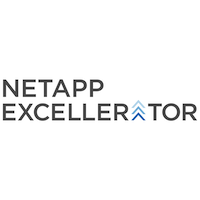
NetApp Excellerator
View Brand PublisherHow startups powered by data, AI, and analytics took centrestage amid COVID-19
If there was one thing that stood out during the early days of the fight against COVID-19 in 2020, it was how technology helped humanity combat a deadly pandemic. And at the core of it all, lies data.
On the medical front, as the pandemic raged relentlessly across the globe, scientists were busy aggregating large datasets which they parsed using artificial intelligence (AI). These datasets were crucial as they helped provide insights that went on to help the medical community diagnose and treat a hitherto-unknown disease to a reasonably successful degree. We saw startups using AI to predict the protein structures of the novel coronavirus to get a better understanding of how it evolves and how to control it and using these findings to help in the development of a vaccine.
In the business world, startups that were leveraging data, analytics, and artificial intelligence were better equipped to innovate and manage the volatile business environment where digital transformation and digital adoption rapidly accelerated. As the COVID-19 pandemic disrupted day-to-day economic activities and supply chain networks, it became imperative to look for indigenous, advanced solutions to sail through the crisis.
But in the beginning, not many were successful. In April 2020, IT industry apex body NASSCOM had conducted a survey of 250 Indian startups on the impact of COVID-19 on their businesses, to understand what needed to be done to remedy the situation. About 90 percent of the surveyed startups said they were facing a fall in revenues, and 30-40 percent said that they were temporarily suspending operations or closing down.
However, on realising that they needed to be nimble, a growing number of startups soon pivoted to seize new opportunities, transforming their business models and offerings and bringing to the market, products and services that were the need of the hour. And with this, data, analytics and AI suddenly took the centrestage. In fact, businesses, both large and small, realised that these are no longer optional, ‘nice-to-have’ technologies but ‘must-have’ technologies.
The power of cutting-edge technologies including AI, analytics, and robotics, among others, was well known even pre-pandemic. In fact, a 2018 McKinsey paper had projected that these capabilities would garner US$9.5 trillion to $15.4 trillion in annual economic value.
AI empowers organisations to tap into newer markets, explore more opportunities, and redefine their operating model. A survey of CXOs and decision-makers by PricewaterhouseCoopers (PwC) showed that the rate of AI adoption increased from 62 percent to 70 percent due to the pandemic. In a report titled Sizing the prize, PwC also predicted that AI can add a global economic value of $15.7 trillion by 2030, and that adoption of AI could result in a boost of up to 26 percent for some local economies.
Cyborgintell, an alumnus part of NetApp Excellerator, changed their targeting and positioning significantly post-pandemic, including accelerating their roadmap in areas they had earlier de-prioritised. This was largely driven by the increased stakeholder mandates and interests in new technologies driven by AI with more active participation on business impact using these technologies. The startups found customers and prospects who were looking to automate in many areas including AI-based decision systems, optimising to drive efficiencies, and growing revenue by understanding customer behaviour.
While the drive to adopt new technology was well under way even prior to the pandemic, the crisis brought on by Covid 19 leapfrogged this movement. Suman Kumar Singh, Founder Cyborgintell, says that the biggest takeaway in the wake of the pandemic is the need created for adoption of these technology systems and the resultant deeper and broader conversations on embedding AI.
The dynamic market conditions precipitated by the Covid 19 crisis also meant that organisations faced a number of data privacy and security challenges. Typically, data exists in silos across the web, and by using solutions built with cutting edge technologies, organisations are able to gather this scattered data and compile it into useful, meaningful information which helps in effcient decision-making. SecurelyShare, another NetApp Excellerator alumnus, has built patented and award-winning solutions which help companies access and process this data securely.
Gartner says that organisations with a higher adoption rate of contemporary technologies, including AI and robotic process automation (RPA), will have a competitive edge in these volatile times. In fact, in Gartner’s list of nine definitive technology trends for 2021, Internet of Behaviors or leveraging data to change and influence behaviours through feedback loops, tops the list. Other emerging trends for the year include AI engineering, hyperautomation, and anywhere operations, all of which make use of aspects of these contemporary technologies. For startups in the space, the scope to innovate and build on these trends is endless.
The PwC report mentioned earlier also noted that at 45 percent, India has registered the highest increase in the use of AI during the pandemic as compared to major economies like the US, UK, and Japan. This trend is, no doubt, very encouraging, and one that can empower more organisations to reconfigure their businesses in the new normal. These technologies can help them create more value, give them a competitive edge and facilitate better decision-making capabilities, enabling them to build a robust future presence.
Applications for NetApp Excellerator Cohort 8 are now open. Apply now.







